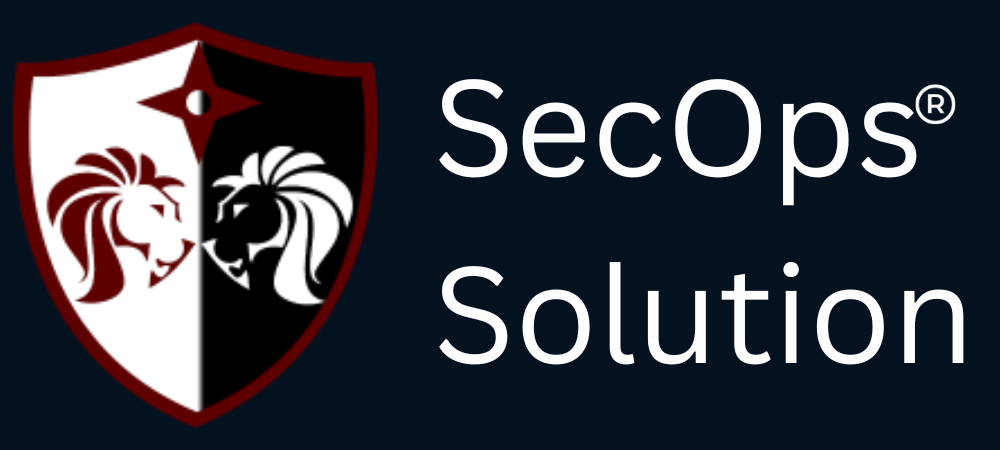
Agentless security for your infrastructure and applications - to build faster, more securely and in a fraction of the operational cost of other solutions

hello@secopsolution.com
.jpg)
Large Language Models (LLMs) represent a transformative breakthrough in artificial intelligence. These models, built on advanced neural architectures like transformers, comprehend and generate human-like text, enabling them to process vast amounts of linguistic data with remarkable accuracy and coherence. Their prowess in understanding, interpreting, and generating text has propelled their utilization across various domains
LLMs excel in several key functionalities crucial for cybersecurity:
The integration of Large Language Models in cybersecurity offers numerous advantages:
Now, let's explore the top 10 LLM Security Tools of 2025 and their significant contributions to fortifying cybersecurity measures:
Meta's release of LLaMA 2 signifies a significant shift in the landscape of large language models. With its 7 to 70 billion parameters and fine-tuning via Reinforcement Learning from Human Feedback (RLHF), this open-source generative text model is a standout. Its adaptability extends to various applications, including chatbots and programming tasks. Meta's move towards openness and customization with Llama Chat and Code Llama showcases their commitment to democratizing AI development.
Anthropic's Claude, introduced in 2021, has emerged as a versatile AI assistant. Its strength lies in its adaptability across multiple domains, excelling in summarization, Q&A, coding, and more. Claude and Claude Instant cater to different user needs, with the latter providing faster and cost-effective AI assistance. Anthropic's emphasis on reliability and expansive capabilities positions Claude as a robust player in enterprise-grade natural language processing (NLP).
BLOOM, launched in 2022, represents a significant milestone in democratizing AI. With its autoregressive design and 176 billion parameters, it's one of the most powerful open-source LLMs. Its ability to generate coherent and accurate text across multiple languages, backed by transparency through open-source access to code and training data via the Hugging Face ecosystem, signifies a commitment to accessibility and collaboration.
Cohere's platform stands out for offering pre-built LLMs catering to various textual input tasks like summarization, classification, and content similarity identification. Their model, Command, particularly excels in text generation, providing NLP solutions without extensive machine learning development. The accessibility of pre-trained models simplifies the adoption of advanced language models for developers.
Crowdworks' core offering lies in AI-driven data labeling services across diverse data types, enhancing precision and reliability. This high-quality labeled data empowers businesses to construct well-trained models with fewer data points, streamlining automation within the labeling process and significantly enhancing language model capabilities.
Google's Bert, a pioneer in transformer-based LLMs, has gained widespread popularity due to its state-of-the-art performance across various languages and applications like sentiment analysis and clinical note analysis. Its open-source nature has fostered the availability of numerous pre-trained Bert models for specific use cases.
Lightning AI's open-source framework streamlines ML workflows, evolving from Grid.ai to delve deeper into MLOps. This platform simplifies the end-to-end ML process, facilitating modular, distributed Lightning Apps where components collaborate seamlessly.
The release of Falcon 180B by the Technology Innovation Institute of the United Arab Emirates showcases impressive strides in the open-source LLM community. With its massive 180 billion parameters and impressive performance in NLP tasks, it closes the gap between proprietary and open-source models, promising enhanced accessibility to advanced language models.
Meta's OPT series, particularly OPT-175B, stands as one of the most advanced open-source LLMs available for research purposes. Its decoder-only transformers offer powerful alternatives for various applications, contributing significantly to the advancement of AI capabilities.
MindsDB's approach as a Virtual AI Database bridges the gap between AI/ML models and data, simplifying the integration process. Its AI-Tables allow interaction via SQL statements, making machine learning more accessible within organizations and enabling the creation of AI-centric applications.
The convergence of LLM technology and cybersecurity brings both promise and challenges. These top 10 LLM tools represent a proactive stance in addressing these challenges, offering comprehensive solutions to fortify LLM applications against an ever-evolving threat landscape.
As we navigate the digital era, the importance of these tools cannot be overstated. They stand as sentinels, ensuring the integrity, confidentiality, and availability of data processed by LLMs, paving the way for a more secure future in an increasingly connected world.
SecOps Solution is an agentless patch and vulnerability management platform that helps organizations quickly remediate security risks across operating systems and third-party applications, both on-prem and remote.
Contact us to learn more.